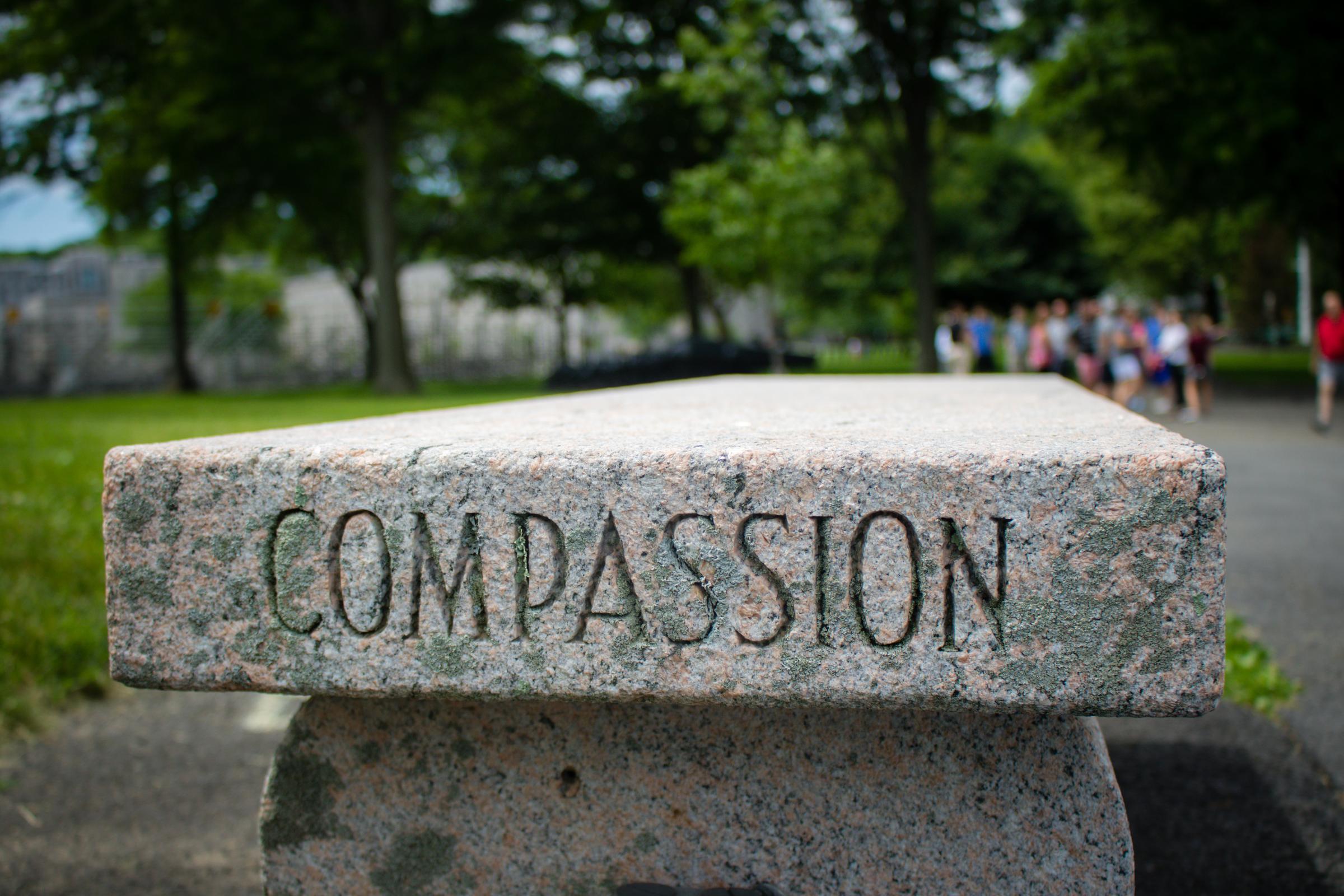Editorial

In his three-year ministry, healing people was clearly important to Jesus. Most of his miracles involve this kind of encounter with the suffering of individual people. It’s very easy to focus on the miraculous act, but maybe it’s the encounter with the other person prior to the act of healing which begins to teach us what compassion is. In his time, and ours, there are people suffering around us all the time. Sometimes we see them, sometimes we are distracted, and sometimes we are completely overwhelmed by our own suffering.
Jesus saw the minority in the crowd trying to be heard and he saw their suffering clearly; the bleeding woman, Martha in her grief, the blind man on the side of the road, the paralytic, the leper, Zaccheus up a tree, and so many others. He saw those whose problems are difficult to solve, whose demeanors are unappealing, whose appearances are troubling, whose presence is embarrassing, who scandalize us, who offend us. He also saw those who are cringing in dark places desperately trying not to be seen, and those who have been silenced. Jesus saw the other person within the experiences of their lives. As our eyes pass over the people who enter our lives, what do we see?
In our quest for efficiencies and group action, we name groups of people who suffer injustice ‘refugees, asylum seekers, First Nations people, the elderly…’ but perhaps this generalized thinking can obscure the details in the experiences of individuals, obscure their individual lives, their loves, their struggles, and their losses. Sometimes we tally up the suffering of these large groups at the hands of society and we operate at arms-length rather than look into someone’s eyes, open our ears, reach out our hands, and take risks with our own feelings and deeply held beliefs. We fear that some darkly concealed prejudices might be revealed. It takes courage to be compassionate, to be willing to change our hearts.
Compassion is a decision to encounter someone else within their life and struggles, to share our humanity and allow ourselves to learn, to feel, to be changed and inspire change because of this sharing.
Jesus listened to the stories of individual lives. He saw the grief and fear in people’s eyes, he heard the contents of their hearts as they spoke their truths, he allowed himself to feel their hurt – there was nothing remote about his responses to them.
Last year, Principals and Trustees listened to the stories of students in our communities concerned with gender diversity who expressed feelings of isolation, misunderstanding and marginalization. We believe that listening to these student voices, seeing their faces, and listening with our hearts, will bring change, more peace and more justice to them and others who are suffering but feeling silenced. When we listen to the stories of others, we begin to live with them within their experiences, and we live compassionate lives together.
‘Walking in Solidarity; a Gender Inclusivity Statement’ is the beginning of a journey of listening and encounter. We share it in this newsletter and on our website. It is beginning to bring about change but we are committed to continue listening and learning to ensure our response is one of encounter and compassion.
Renee Oberin
Mission Leader
Kildare Ministries

